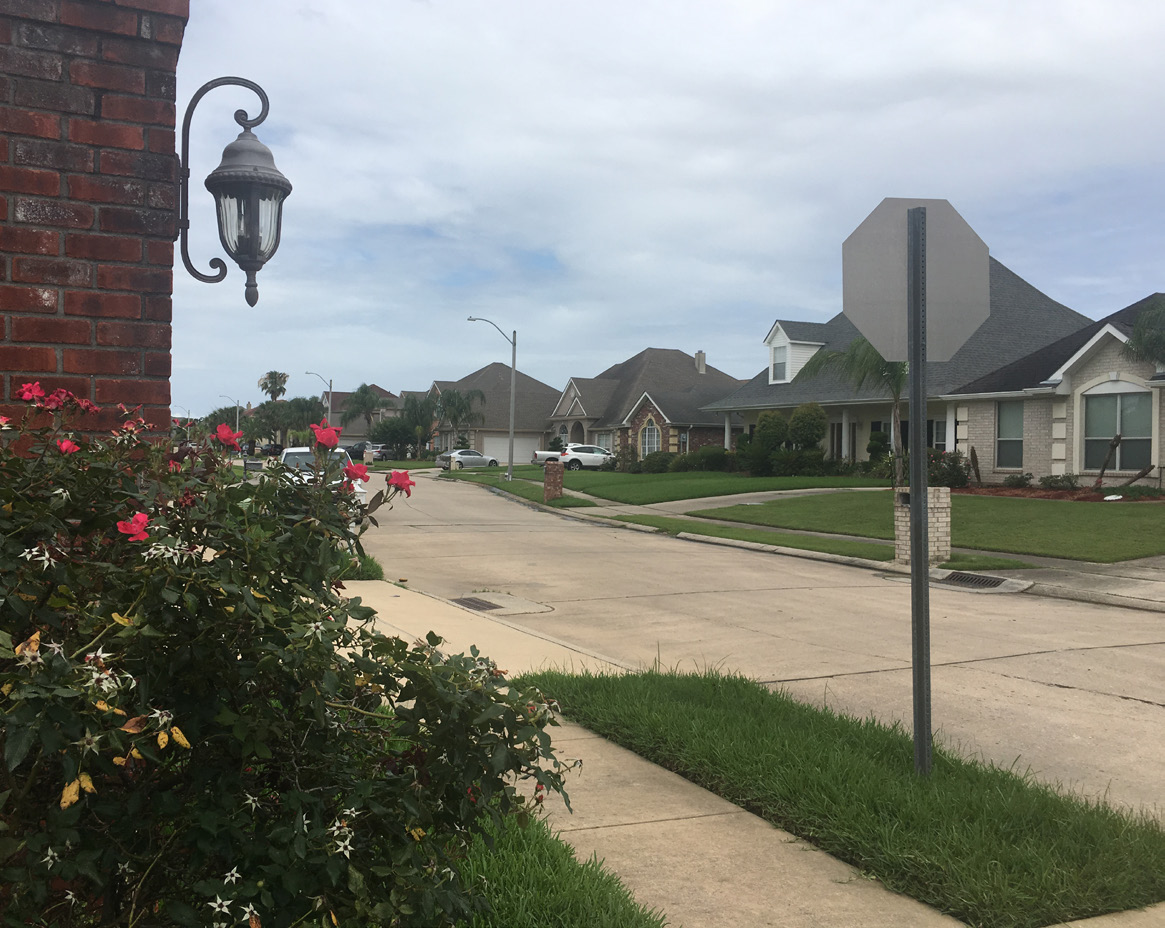New Orleans East is where my heart lives. It’s been living there for as long as I can remember. It’s a place where love was planted and grew. It’s where family members watched me become the person I am today.
The East wasn’t always this way. This part of New Orleans wasn’t developed until the 1960s. Back then, the East was predominately white. There’s this thing we call “white flight,” and that’s where white people moved to. They began building subdivisions. However, the East didn’t stay that way for long. Around the 1980s and 90s is when black people started moving into the East. Then, “white flight” happened again; white people moved out of the East and built their own subdivisions elsewhere.
This was an opportunity for black builders to expand this suburban part of New Orleans, and to create their own neighborhoods for black families to move into. Neighborhoods, such as McKendall Estates, came about.
My family decided to move into McKendall Estates. My mother recalls how refreshing it was to see successful and hardworking black people living in the neighborhood.
The homes here are not like any other. Not one home is the same as the next. Every home has a unique element to it. Our home is wrapped with grey bricks, and there are palm trees that stand high in the front of our house.
When I was younger, this house felt alive. There were always people over, whether it was friends over during the summertime, or family members over for gatherings. Red beans and rice, jambalaya, fried chicken, baked macaroni, and deviled eggs were always served along with wine coolers, Coronas, and Capri Suns.

McKendall Estates in New Orleans East. Photograph by Kayla Fletcher.
2004: McKendall Estates
The smell of freshly cut grass. Sweet pea bubble bath. “Your house smells like strawberries,” a school friend tells me. My dad washing my hair under the kitchen sink. My mom combs it out, rubs Pink Oil through it, and begins braiding it. The hair pulls on my scalp. I start to cry. “Stop crying,” she tells me, “Stop being so tender-headed.” My sister comes in my room and stares me down. She probably called me a crybaby, and I probably cried more and told her to leave.
After my mom finished braiding my hair, I put on colorful clothes, grabbed my walkie talkie, and ran out the garage to get my bright, blue bike.
This is summertime in my neighborhood before the storm.
All of the neighborhood kids would meet in front of my house. In a day, we’d play dodgeball, swim, ride our bikes throughout the neighborhood, hang out in someone’s backyard until we got bored. Everyday was different. Something new was always happening.
It would be able six of us that would get together. Sometimes it felt like thirty of us were out there. The world seemed so big when I was younger.
The days we played dodgeball were my favorite because I was the best. Playing in the street was dangerous, but it felt safer when it was a lot of us.
“Car!” Someone yelled, and we all sprinted to the sidewalks, trying to catch our breaths as a car passed slowly.
When the street lights came on, that meant that the mosquitos were out. No one wanted to get bit, so we were all back inside by that time. There was always warm dinner on the table and a cool glass of Sunny D. My hair was a mess.
 NOLAbeings Multimedia artist Claire Bangser created NOLAbeings as a portrait-based story project that marries...
NOLAbeings Multimedia artist Claire Bangser created NOLAbeings as a portrait-based story project that marries...  Voodoo in New Orleans: Reviving history: New Orleans fortune telling This article takes a deep dive into the history of Voodoo in New Orleans, its hybridization with Catholicism, and its present-day place in the city's culture. The author visits fortune-tellers in the French Quarter, using their guidance as a tool for introspection rather than a deterministic predictor of the future. Through her experiences in New Orleans, the author feels a mystical connection to both the past and the future.
Voodoo in New Orleans: Reviving history: New Orleans fortune telling This article takes a deep dive into the history of Voodoo in New Orleans, its hybridization with Catholicism, and its present-day place in the city's culture. The author visits fortune-tellers in the French Quarter, using their guidance as a tool for introspection rather than a deterministic predictor of the future. Through her experiences in New Orleans, the author feels a mystical connection to both the past and the future. 